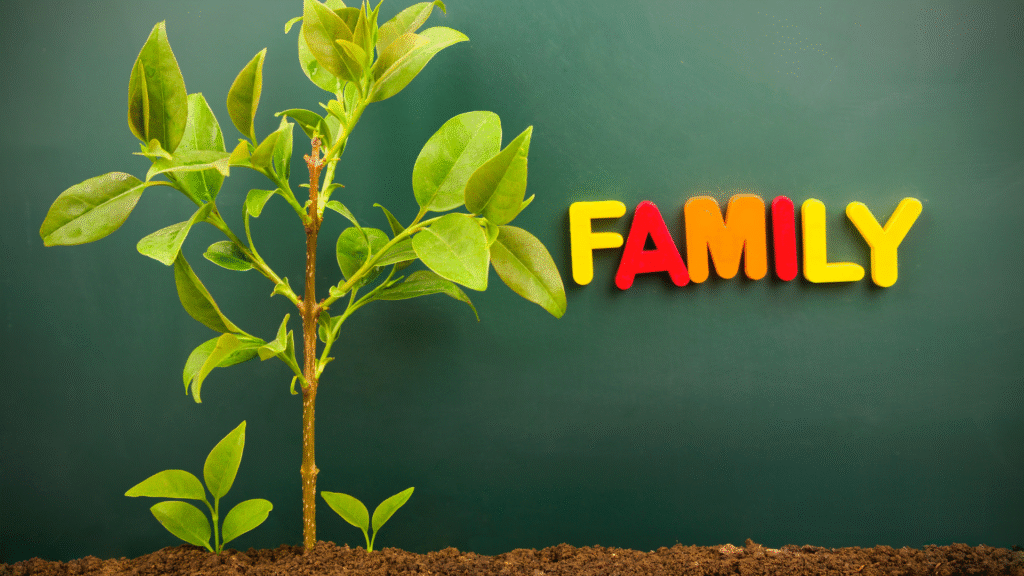This year, as I look back, I find myself filled with deep gratitude. Gratitude for a timely cancer diagnosis that came when treatment was possible. For the care and expertise of the medical professionals who guided me. For living in Canada, where that care was accessible. For the compassion of my employer and colleagues who gave me the space to heal. And above all, for the love and unwavering support of my family, friends, and community.
Today, I want to write about how my relationship with my family became my strongest antifragile lifeline—and how this past year has reshaped my understanding of what it means to truly build healthy, resilient relationships.
The Web of Relationships We Live In
We live in a world made of relationships. The quality of those connections can profoundly shape our wellbeing—physically, emotionally, and mentally. Strong, supportive relationships can elevate us to perform at our highest capabilities; fractured or toxic ones can drain our energy and dampen our spirit.
The closer the relationship, the greater its power—for better or worse.
I’ve always had a tight-knit family, but when I received my cancer diagnosis, the hardest part wasn’t the news itself—it was having to tell them.
Shared Strength in the Face of Uncertainty
As I wrote about in this post, we were about to leave on a trip to India when I learned the news. I called my mother, determined to take this in stride. My mother is a fighter; I didn’t fall far from that tree.
Thankfully, my family’s response mirrored my own—calm, pragmatic, and practical. Together, we took a “let’s learn more and figure out what it takes to beat this thing” approach.
That shared mindset gave me:
- A deep sense of belonging—we were cut from the same cloth.
- Comfort in our aligned values.
- Confidence that we were all moving in the same direction.
In the early days, it was problem-solving at its best. My family is full of medical professionals who helped me understand the disease, the treatment options, and how to best prepare my body and mind for what was ahead.
But knowledge can be a double-edged sword. The same medical insight that brought clarity also carried the burden of knowing too much—of imagining every possible outcome. While they appeared calm, I knew they were carrying deep anxiety underneath.
When Support Becomes a System
After my husband, son, and I returned from India, my sister and her family visited us over the holidays, changing their plans last minute to be with us before treatment began. My nieces doted on my son, keeping him entertained and comforted while he tried to make sense of what was happening. My sister came with me to my first chemo appointment, ensuring I was comfortable and cared for.
A few weeks later, my parents arrived from India and moved in with us. Their presence lightened the emotional and physical load of everyday life. My son thrived having his grandparents around, and we all benefited from the care and grounding they brought into our home.
Of course, more people under one roof adds complexity. We navigated different personalities, opinions, and ways of coping. Tensions rose and fell. Yet through it all, the constant undercurrent was love.
The stress we experienced came from uncertainty, not lack of support. The presence of my family—even through occasional friction—was infinitely better than the absence of it. And the time we spent together became a gift that will stay etched in my memory forever.
What I Learned About Myself—and About Us
This experience stripped away any ambiguity about priorities. Family is my number one. Full stop.
My family helped me:
- Navigate complex emotional and logistical challenges.
- Learn how to better resolve conflict.
- Build forbearance and patience I didn’t know I had.
And from that, I began to see relationships—especially family relationships—through an antifragile lens: they can strengthen through strain if tended with care and intention.
What Makes Relationships Antifragile
Whether with parents, siblings, partners, or children, here’s what I’ve learned about nurturing relationships that grow stronger through challenge:
- Understand shared values—and your differences.
Knowing where you align creates cohesion; knowing where you differ builds empathy.
- Acknowledge imperfections.
Family members can be quirky, stubborn, or set in their ways. That’s part of the tapestry. As long as no one is being harmed, accept the weirdness with grace.
- Set boundaries with love.
I learned quickly what was helpful for my emotional recovery and what wasn’t. Boundaries are not barriers—they are the scaffolding that keeps the structure healthy.
- Communicate with respect and transparency.
Really listen. Ask to be listened to. Truth said kindly builds trust. - Have each other’s backs.
Show up. Be dependable. Strengthen trust through small, consistent actions.
The Gift of Antifragile Love
I’ve always felt the love of my family, but this past year deepened that love into something sturdier, more tested, and more real. It also reminded me that family life isn’t all harmony and gratitude—there are still moments of irritation, misunderstanding, and stepping on each other’s toes. That’s part of being human and part of being close.
But underneath the occasional friction lies something far more enduring: genuine care, shared history, and a commitment to show up for one another even when it’s messy. A good, supportive family doesn’t erase stress or disagreement—it helps you recover from it faster.
That, to me, is the essence of an antifragile relationship: it can bend without breaking, argue without shattering trust, and keep growing stronger through it all.
The health of our relationships is foundational to the health of our lives. Families, like any complex system, need tension, communication, and shared purpose to thrive. And when nurtured, even imperfectly, they become one of life’s greatest gifts—a source of strength that steadies us when the world feels uncertain.
Reflection Prompt
What relationships in your life help you grow stronger through challenge? How can you nurture antifragility within them—so that together, you rise forward?
